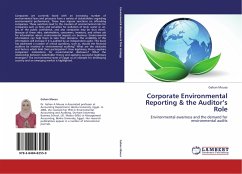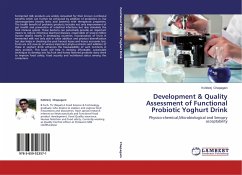Companies are currently faced with an increasing number of environmental laws and pressures from a variety of stakeholders regarding environmental performance. These laws impose sanctions on offending companies. These sanctions lead to the creation of environmental risks for companies such as fines and penalties for pollution of land, water or air, loss of the public confidence, and also companies may be shut down. Because of these risks, stakeholders, consumers, investors, and others ask for information about environmental impacts on business. Environmental information can help them to take their decisions. The credibility of this information will increase if it is audited by an independent audit. This book has addressed a number of critical questions, such as, should the financial auditors be involved in environmental auditing? What are the obstacles and factors which limit their participation? How legitimacy theory explains companies motivations for environmental disclosure? What the relationship between stakeholder theory and applying successful legitimacy strategies? The environmental state of Egypt as an example for developing country and an emerging market is highlighted.
Bitte wählen Sie Ihr Anliegen aus.
Rechnungen
Retourenschein anfordern
Bestellstatus
Storno








